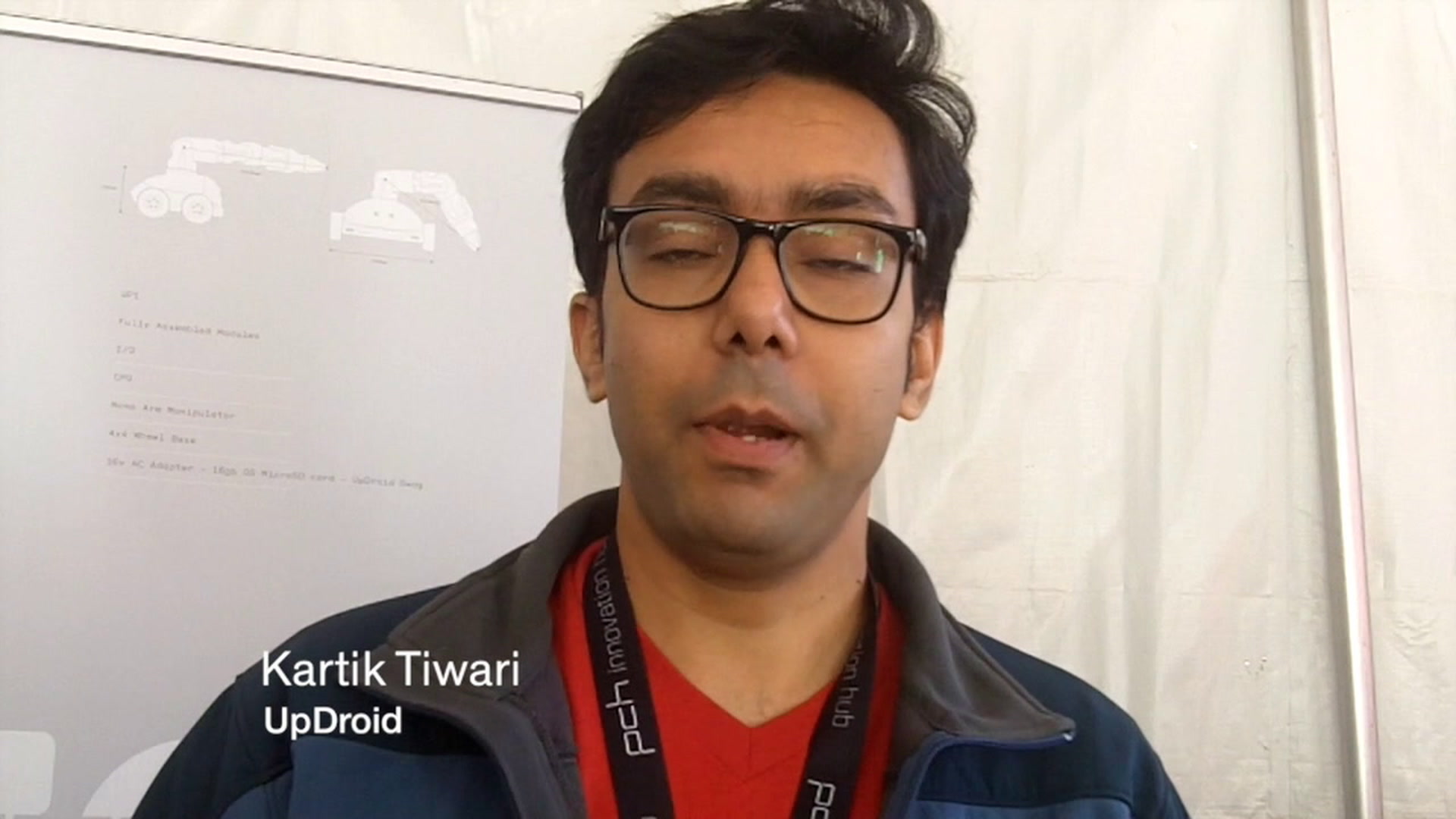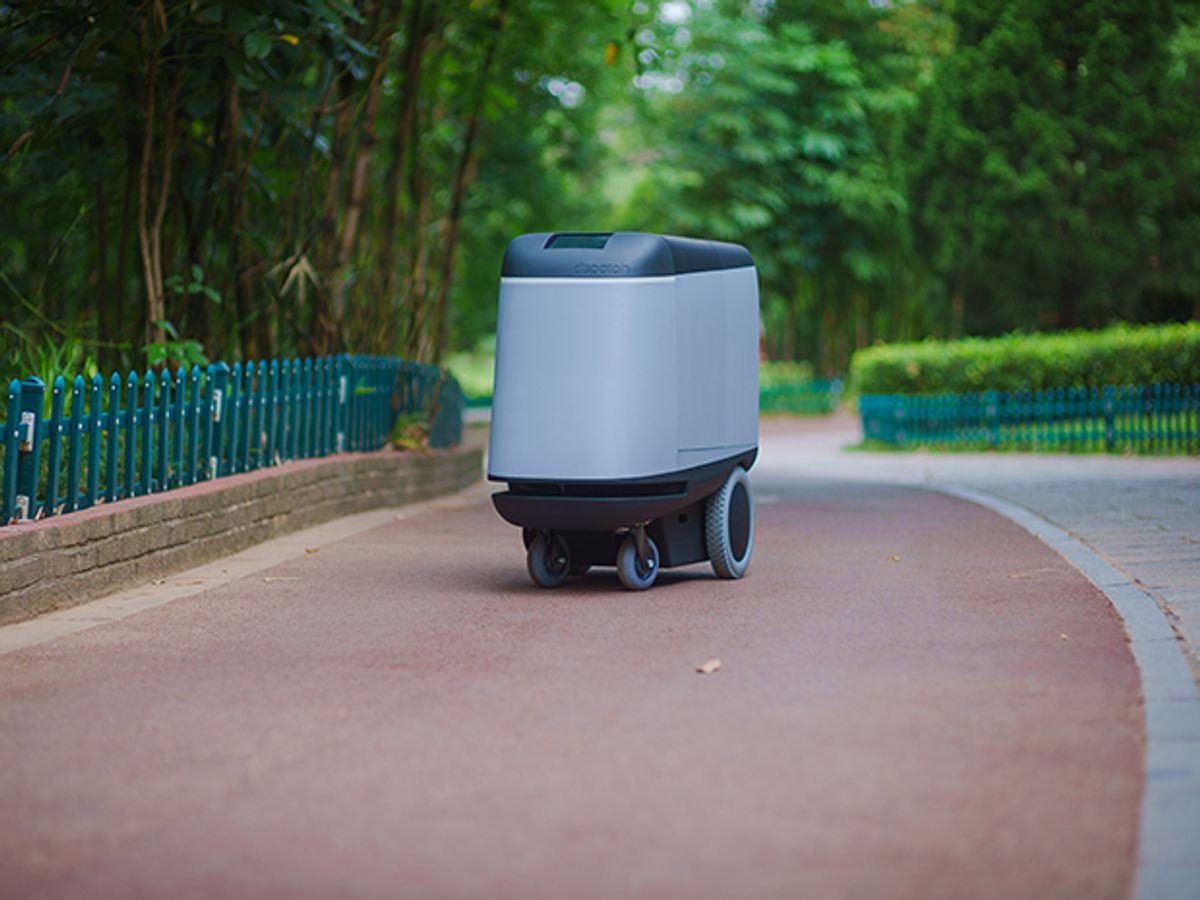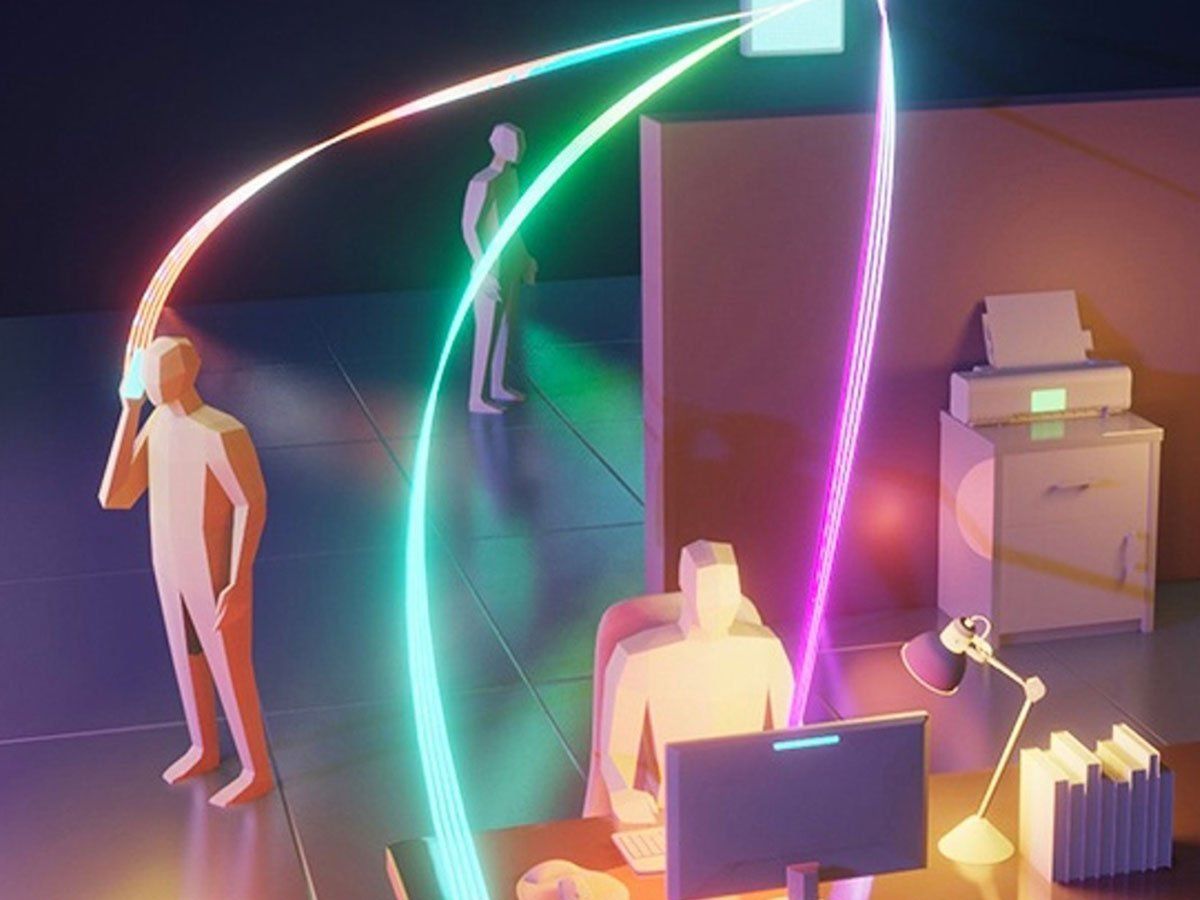With two hardware accelerators inadvertently scheduling back-to-back launch days, following STEAM Carnival’s successful weekend event, these past seven days in San Francisco have been a bit of a startup party. And nobody knows how to work the crowd at a launch event better than a robot, or two, or three, or more.
The new robot startups in town, introduced by the HAX accelerator on Tuesday and by the Highway1 accelerator on Wednesday, are:
Dispatch Robotics: The company’s autonomous delivery cart, Carry, is designed to travel on sidewalks and in bike lanes for local deliveries—the kind currently handled by on-demand services like GrubHub and Instacart. The system looks like an ice-cream cart, the right size, company representatives indicated, to be easily seen by pedestrians and bicyclists without being intimidating. A cart can carry items for multiple receivers; they can be locked in separate compartments and retrieved with unique access codes. It’s got some issues: In the demo, it couldn’t make it up the ramp to the stage; steps and curbs are going to be absolute roadblocks. And it’s hard to believe that nobody would purposefully get in its way—or worse—in its travels. Even so, cofounder Stav Braun said it’s got a big advantage over drones for delivery: “The idea of heavy groceries flying over your head is a scary thought.” And the initial target market—private, controlled spaces like corporate and university campuses—makes sense. Dispatch said the system would be priced as a service, so gave no idea how much each cart would cost. (Also see my colleague Evan Ackerman’s analysis of a competing bot by Starship Technologies.)
UpDroid: UpDroid is the latest entry in a long list of robots intended for people who simply want to mess around with robots, rather than dedicated robots intended to perform a specific task right out of the box. The founders of UpDroid, out of Carnegie Mellon, say their robot is special, though, not only because the hardware can be tweaked by snapping in different sensor modules, or because it runs the open-source operating system ROS and has a browser-based interface that allows users to get started immediately developing software in Python—but because at under $1000 (probably closer to $800, its founders say) it is going to be the cheapest full-featured ROS robot on the market. You can check it out in the video below and look for it to ship around this time next year; an unassembled developers kit will be available in the spring.

Nua: Nua cofounder Alex Libman pointed to Disney’s Fantasia as inspiration, specifically, when Mickey as a wizard made ordinary objects move and perform tasks (picture the brooms carrying buckets of water). Nua, he said, plans to make all sorts of everyday belongings move and communicate—starting with luggage. The company introduced a suitcase that can follow its owner, navigating around objects and other pedestrians as necessary. The target market is traveling families; not a bad idea, because parents never have enough hands. However the basic platform (a luggage manufacturer could build a standard suitcase on top of it) can only carry 12 kg. That’s about half the standard luggage limit, and traveling with kids or not, I’ve never packed that lightly. No pricing yet announced.

Simbe Robotics: Simbe’s Tally robot is intended to roam store aisles and check out what’s on the shelves and what’s sold out—a task typically done today by store employees carrying hand-held scanners. The plan is to offer the robots to retailers as a service—Simbe will be doing much of the analysis of what the robot “sees” in the cloud. Pricing is yet to be determined, but it’s sure to be cheaper by the hour than the humans it will replace.
Tekla S. Perry is a senior editor at IEEE Spectrum. Based in Palo Alto, Calif., she's been covering the people, companies, and technology that make Silicon Valley a special place for more than 40 years. An IEEE member, she holds a bachelor's degree in journalism from Michigan State University.



